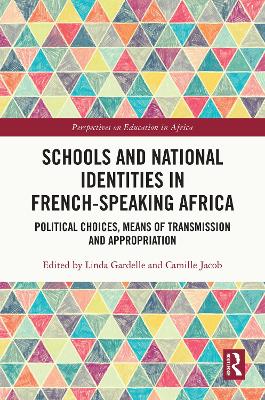Perspectives on Education in Africa
1 total work
Schools and National Identities in French-speaking Africa
Schools and National Identities in French-speaking Africa showcases cutting-edge research to provide a renewed understanding of the role of schools in producing and reproducing national identities. Using individual case studies and comparative frameworks, it presents diverse empirical and theoretical insights from and about a range of African countries.
The volume demonstrates in particular the usefulness of the curriculum as a lens through which to analyse the production and negotiation of national identities in different settings. Chapters discuss the tensions between decolonisation as a moment in time and decolonisation as a lengthy and messy process, the interplay between the local, national and international priorities of different actors, and the nuanced role of historiography and language in nation-building. At its heart is the need to critically investigate the concept of "the nation" as a political project, how discourses and feelings of belonging are constructed at school, and what it means for schools to be simultaneously places of learning, tools of socialisation and political battlegrounds.
By presenting new research on textbooks, practitioners and policy in ten different African countries, this volume provides insights into the diversity of issues and dynamics surrounding the question of schools and national identities. It will be of particular interest to scholars, researchers and postgraduate students of comparative and international education, sociology, history, sociolinguistics and African studies.
